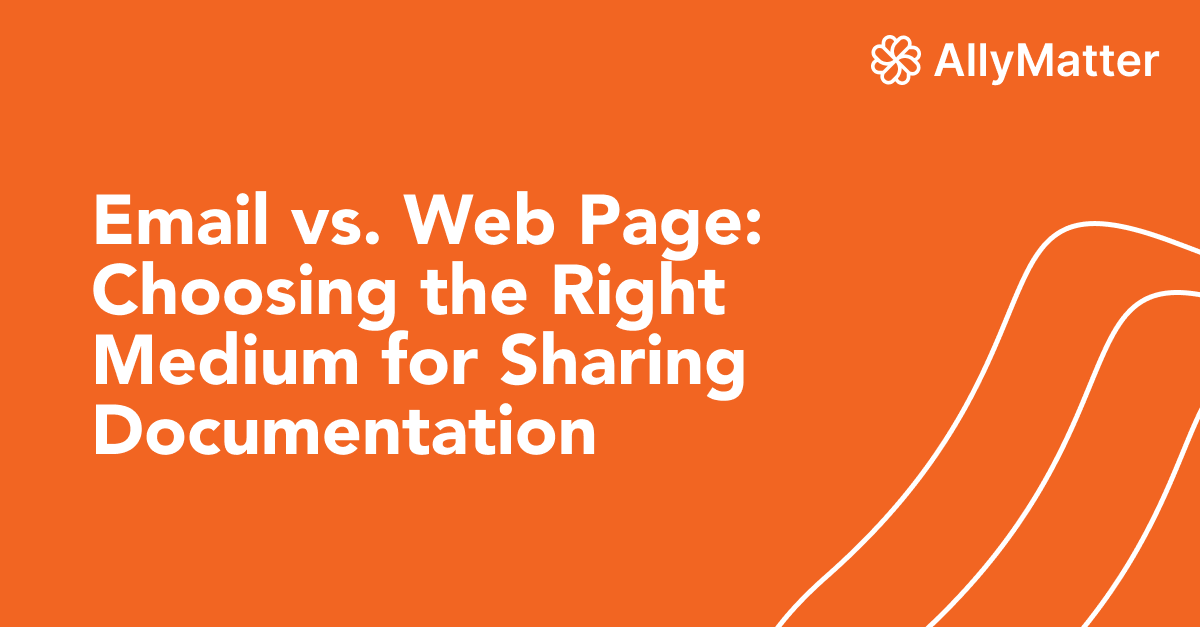Email vs. Web Page: Choosing the Right Medium for Sharing Documentation
In today’s digital age, one of the challenges faced by professionals, educators, and businesses alike is deciding the best way to disseminate information. Two of the most common channels are sharing documents via email or through a web page. Both have their merits, but when should one be preferred over the other? Let’s dive deeper.
Advantages of Emailing Documentation
1. Confidentiality and Security
One of the primary advantages of using email is the promise of enhanced security. If your document contains confidential or proprietary information, sharing it directly via email can offer a more secure route. While password-protected web pages are available, they might not offer the same level of security against hacks or unauthorized access.
2. Tailored Audience
When you have a specific, limited audience, such as a project team or a particular client, email provides a direct line of communication. It ensures that the intended recipients receive and access the document without the need for third-party platforms or additional steps.
3. The Ephemeral Nature of Information
Not all information is meant to last. Sometimes, the data you’re sharing has a short lifespan, or it’s subject to frequent updates. In such instances, sending updates via email can be more efficient than constantly updating a web page.
4. Bypassing Access Barriers
There are times when the recipients might face difficulties accessing specific websites due to firewall restrictions, stringent company policies, or regional limitations. Sharing documents via email sidesteps these issues, ensuring seamless access.
5. Simplicity and Technical Ease
If you’re constrained by resources or lack the technical expertise to set up a web page, sending an email is straightforward and doesn’t require any specialized knowledge.
6. Immediate Feedback
Email is inherently interactive. By sending a document through email, you can prompt the recipients to provide immediate feedback, ask questions, or initiate a discussion right within the email thread.
Advantages of Web-based Documentation
1. Longevity and Continuous Access
Web pages shine when the information is intended for long-term access. Whether it’s a comprehensive user guide, a research paper, or product documentation, hosting it on a web page ensures that it remains accessible for as long as needed.
2. Real-time Updates
The dynamic nature of the web means you can make live updates to the content. This ensures that visitors always access the latest and most accurate version without the need to resend or redistribute the information.
3. Catering to a Broad Audience
If you’re targeting a more general or extensive audience, web pages offer scalability. A single link can be accessed by an unlimited number of users, making it ideal for large-scale dissemination.
4. Interactive Capabilities
Web pages offer a richness that emails can’t match. From embedding videos and interactive charts to integrating feedback forms and comment sections, web documentation can be a more engaging experience for the user.
5. Search Engine Discoverability
Public web pages have the added advantage of being discoverable via search engines. This can significantly increase the reach of your documentation, especially if it’s something that a broader audience might find valuable.
6. Efficient Organization
Web pages can be organized, categorized, and indexed more efficiently than email attachments. For comprehensive documentation, this means easier navigation and a better user experience.
Making the Right Choice
In conclusion, the decision between emailing documentation or hosting it on a web page boils down to the nature of the content, the needs and size of your audience, and the intended use of the information. By understanding the strengths of each medium, you can make an informed choice that best serves your objectives and your audience’s needs.

